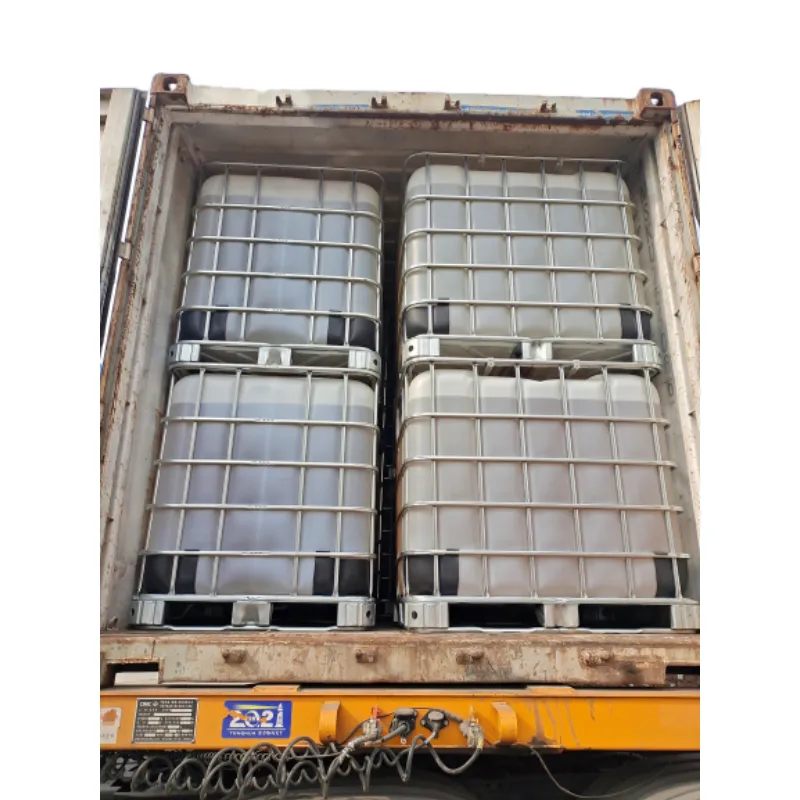
solvents
The Role of Solvents in Chemistry and Everyday Life
Solvents play a crucial role in both the fields of chemistry and our daily lives, serving as essential mediums for dissolving substances and facilitating chemical reactions. Defined as substances that can dissolve a solute, resulting in a solution, solvents come in various forms and possess distinct properties that make them suitable for specific applications.
Water, often referred to as the universal solvent, is the most widely used solvent due to its unique ability to dissolve a variety of compounds. Many chemical reactions necessary for life occur in aqueous solutions, where essential ions, nutrients, and biomolecules interact. From the cellular functions in living organisms to the processes involved in agriculture, water's solvent properties are foundational to sustaining life.
In addition to water, organic solvents such as ethanol, acetone, and dimethyl sulfoxide (DMSO) are indispensable in laboratories and industrial applications. These solvents are often used to dissolve organic compounds for synthesis, extraction, and purification processes. For instance, ethanol is commonly employed in the extraction of bioactive compounds from plants, while acetone is a popular solvent for cleaning and thinning materials in the paint and coating industry. The choice of solvent can significantly affect the efficiency and outcome of chemical reactions, making it a critical factor in experimental and manufacturing processes.
solvents

One of the notable properties of solvents is their polarity, which influences their ability to dissolve different substances
. Polar solvents, such as water, are particularly good at dissolving ionic and polar compounds, while non-polar solvents, such as hexane, are better at dissolving non-polar compounds like fats and oils. This understanding of solvent properties allows chemists to select the appropriate solvent for their specific needs, optimizing reaction conditions and enhancing product yields.Beyond chemistry and industry, solvents are integral to many everyday products. Household items such as cleaning supplies, paints, varnishes, and adhesives often contain solvents that facilitate their intended functions. For example, the solvents in cleaning products help to dissolve dirt and grease, making it easier to remove stains from surfaces. Similarly, the solvents in paints and varnishes allow for a smooth application and even distribution of color, contributing to both aesthetics and protection of surfaces.
However, the use of solvents is not without its challenges. Many solvents pose health and environmental risks, particularly when they are volatile organic compounds (VOCs). VOCs can contribute to air pollution and have been linked to adverse health effects, including respiratory issues and neurological problems. As a result, there is a growing emphasis on developing greener alternatives to traditional solvents. Green chemistry promotes the use of solvents derived from renewable resources, as well as methods that reduce or eliminate solvent use altogether. Techniques such as solvent-free synthesis and the use of supercritical fluids are gaining traction, presenting opportunities for more sustainable chemical practices.
In conclusion, solvents are indispensable in both research and practical applications, playing a vital role in dissolving substances and facilitating reactions. While the benefits of solvents are vast, their potential risks necessitate a careful approach to their usage. The ongoing evolution in solvent selection and the push towards greener alternatives reflect a growing awareness of environmental and health considerations. As we continue to innovate and explore the world of solvents, we are likely to uncover new possibilities that maximize their benefits while minimizing their drawbacks, ultimately contributing to a more sustainable future in chemistry and beyond.
-
Pure Sodium Dichloroisocyanurate Dihydrate | Powerful DisinfectantNewsAug.29,2025
-
Industrial Chemicals: Quality & Purity for Every IndustryNewsAug.28,2025
-
Nitrile Rubber Honoring Strict Production StandardsNewsAug.22,2025
-
Aspartame Ingredients Honoring Food Safety ValuesNewsAug.22,2025
-
Fertilizer for Balanced Plant NutritionNewsAug.22,2025
-
Cyanide Gold Processing with High Purity AdditivesNewsAug.22,2025
-
Formic Acid in Textile Dyeing ApplicationsNewsAug.22,2025
Hebei Tenger Chemical Technology Co., Ltd. focuses on the chemical industry and is committed to the export service of chemical raw materials.
-

view more DiethanolisopropanolamineIn the ever-growing field of chemical solutions, diethanolisopropanolamine (DEIPA) stands out as a versatile and important compound. Due to its unique chemical structure and properties, DEIPA is of interest to various industries including construction, personal care, and agriculture. -

view more TriisopropanolamineTriisopropanolamine (TIPA) alkanol amine substance, is a kind of alcohol amine compound with amino and alcohol hydroxyl, and because of its molecules contains both amino and hydroxyl. -

view more Tetramethyl Thiuram DisulfideTetramethyl thiuram disulfide, also known as TMTD, is a white to light-yellow powder with a distinct sulfur-like odor. It is soluble in organic solvents such as benzene, acetone, and ethyl acetate, making it highly versatile for use in different formulations. TMTD is known for its excellent vulcanization acceleration properties, which makes it a key ingredient in the production of rubber products. Additionally, it acts as an effective fungicide and bactericide, making it valuable in agricultural applications. Its high purity and stability ensure consistent performance, making it a preferred choice for manufacturers across various industries.





